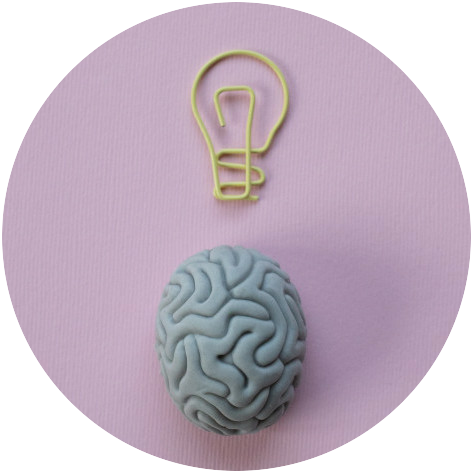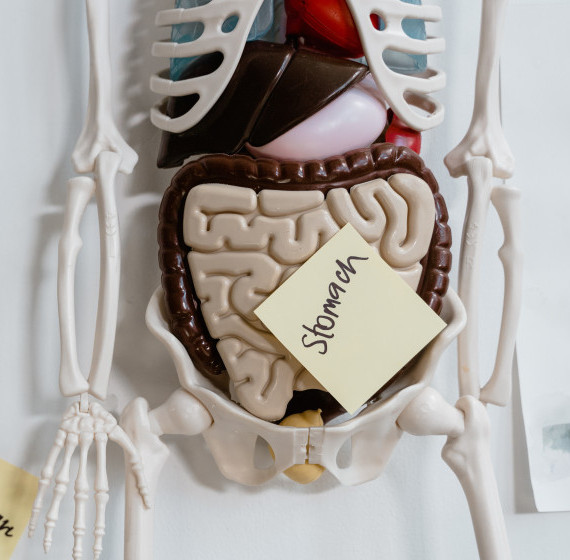
More than ever, this is a question people are asking–and not just us over 50 folks either. Here are the plain answers and what we need to know: healthy digestion, reduced inflammation, a healthy diet, and the good good sleep are what makes your gut healthy. It’s really that simple.
The gut is responsible for so many vital functions like digestion, absorption, immunity and even control of the central nervous system, that it’s no surprise that an unhealthy gut negatively affects all these things. The gut is not only the center of our immune system, it is the center of our emotional activity–deeply affecting our happiness and sense of well-being.
The Gut-Brain Connection
The gut is like a second brain, containing more than 100 million neurons that are connected to our central nervous system by the vagus nerve, which runs from the brain stem down to the GI tract. This means the gut can actually send signals back up to our brains, influencing how we feel both physically and emotionally. The gut sends signals to the brain when  something isn’t right down there, and when things are going well.
something isn’t right down there, and when things are going well.
Now you may not know that the gut also has its own nervous system (separate from the central nervous system). This means that when we experience some emotions like, anger, fear, or anxiety, we can feel it in our gut. Right in the pit of our stomach.
Digestion and Immune Health
Good gut health is essential for good digestion. Our digestive system consists of the mouth, esophagus, stomach, the small and large intestines. Food travels through this system when we swallow it. The digestive system starts working immediately when we chew our food–it tells the stomach to get ready. The gut is where the food is digested, broken down and absorbed into the blood stream. A healthy gut makes it easier for our body to absorb nutrients and extract vitamins from our food.
The gut is the largest immune organ in the body–containing 70% of our immune system. It’s the first line of defense against bacteria, viruses, and parasites. It also knows what is foreign and what belongs in our bodies. As you can see, a healthy gut is important to help reduce inflammation and chronic health conditions like autoimmune diseases or even heart disease.
Inflammation is Part of Our Immune System
Yes, that is true, and inflammation is a normal response our body has to injury or trauma (see sprained ankle). But when inflammation is chronic (like always being around) it can cause fatigue, joint pain, and digestive problems.
Good gut health helps ensure that the food we eat is converted into energy that fuels the body — not just calories but also vitamins and minerals essential for good overall health. The right balance of bacteria in the gut helps with this process and provides protection against harmful bacteria that could cause infections or illness.
What Are Signs Of A Healthy Gut?
Regular bowel movements. Stools should be soft, well-formed, and medium to dark brown color. That’s probably enough discussion on this subject, but If you have a bowel movement that is very uncomfortable, you should see a health care provider.
You’ve been eating a healthy diet for years and haven’t had any digestive problems. I know, we drone on about healthy diets, but this is a strong sign you are doing something right.
You rarely get sick because your immune system is strong and robust.
No bloating or other symptoms of indigestion. Bloating is the buildup of gas in the digestive system and can be very uncomfortable, even painful.
Good energy and concentration. When our gut microbes are out of whack, we can feel lethargic and even have brain fog. A healthy gut can help prevent chronic fatigue and good energy levels obviously promote better concentration.
The Good Good. Yes, I love sleep and write of it often. We can find it hard to get quality sleep if we have poor digestion and poor absorption of nutrients. This can cause our blood sugar levels to fluctuate throughout the day, leading to stomach growling, burping and gas, which all make it hard to fall asleep at night.
How do I activate my gut?
What we are talking about here is how do we get the gut working the way it was intended to. There are some simple and easy steps we can all take, including eating healthier and adding fiber to our diets.
There are also natural remedies, like eating garlic or taking prebiotics, probiotics or postbiotics.
A good night’s sleep helps to activate the gut and to ward off illnesses. Try winding down before bed to help keep the body clock on track. 
You may even want to try a low impact strength training routine or take a break from the hectic pace of modern life by engaging in a low impact aerobics class or two.
There is no one way to gut health. We all have to take the approach that works best for us. Just remember our gut is responsible for way more than just digestion. It also impacts our health and mental well being. Maybe I’ll eat something a bit healthier tonight.
We invite your comments and feedback below.
This is a great article on gut health and the importance of maintaining a healthy gut. I appreciate the Your clear explanation of the gut microbiome and how it affects our overall health. It’s interesting to learn about the various foods that promote a healthy gut and how lifestyle factors like stress can have a negative impact. This article provides helpful tips on how to improve gut health and I will definitely be implementing some of these suggestions into my daily routine.
Thank you for sharing this insightful information about gut health and its impact on our overall well-being.
It’s fascinating to learn about the gut-brain connection and how our gut health can influence our emotions and immune system. I completely agree that maintaining a healthy gut through good digestion, reduced inflammation, a healthy diet, and quality sleep is crucial.
I appreciate the emphasis on regular bowel movements, a healthy diet, strong immunity, and absence of bloating or indigestion as signs of a healthy gut.
I’m inspired to make healthier choices. Thank you for providing these valuable insights and practical tips. I’ll definitely keep them in mind and strive for a healthier gut. Keep up the great work!
Thank you for your comments Wallace. Gut health is important and this post has been up for awhile so I’m happy its starting to get some traction!
Hey Spencer, I just finished reading your piece on gut health, and it’s packed with great info! I found the link between our gut and brain, especially with the vagus nerve, really thought-provoking. While I knew a healthy gut was important, the depth of its influence on our feelings and overall health was new to me. Quick question: For someone wanting to optimize their gut health, how frequently should they incorporate prebiotics, probiotics, or postbiotics into their diet? Do you have any favorite foods that naturally offer these benefits? Also, you touched on the benefits of low impact strength training—do you have any starter exercises you’d suggest for newcomers? Your insights definitely got me thinking about my food choices more critically. Thanks for shedding light on this!
Thank you for your comments. Unfortunately, I’m not allowed to give out advice on how frequently you should include supplements in your diet. I might get in trouble except to say please check with a professional healthcare provider before starting any diet or exercise routine.
Keeping my gut healthy is essential for my overall well-being, and I’ve learned that several factors play a role. I make sure to eat a diet rich in high-fiber foods and fermented items like fruits, vegetables, and yogurt. Drinking plenty of water helps support my gut lining, and I often include probiotics and prebiotics to maintain a balanced gut environment. I’m cautious about using antibiotics and only take them when necessary to avoid disrupting my gut’s natural bacteria. Regular exercise has been a boon for my gut health, and I’ve found that managing stress through meditation and getting enough sleep is invaluable. I also try to limit my intake of artificial sweeteners because of their potential impact on gut bacteria. For personalized guidance, I always consider consulting with healthcare professionals.
This article provides a clear and concise overview of the importance of gut health, especially for individuals over 50. I appreciate the way it highlights the various aspects of gut health, from its impact on digestion and immune health to its connection with emotional well-being. The emphasis on the gut-brain connection and the role of inflammation is particularly intriguing. Have you personally taken any steps to improve your gut health? Are there specific strategies or practices mentioned in the article that you find particularly appealing or applicable to your own well-being?What are some practical steps individuals can take to improve their gut health and its impact on overall well-being?